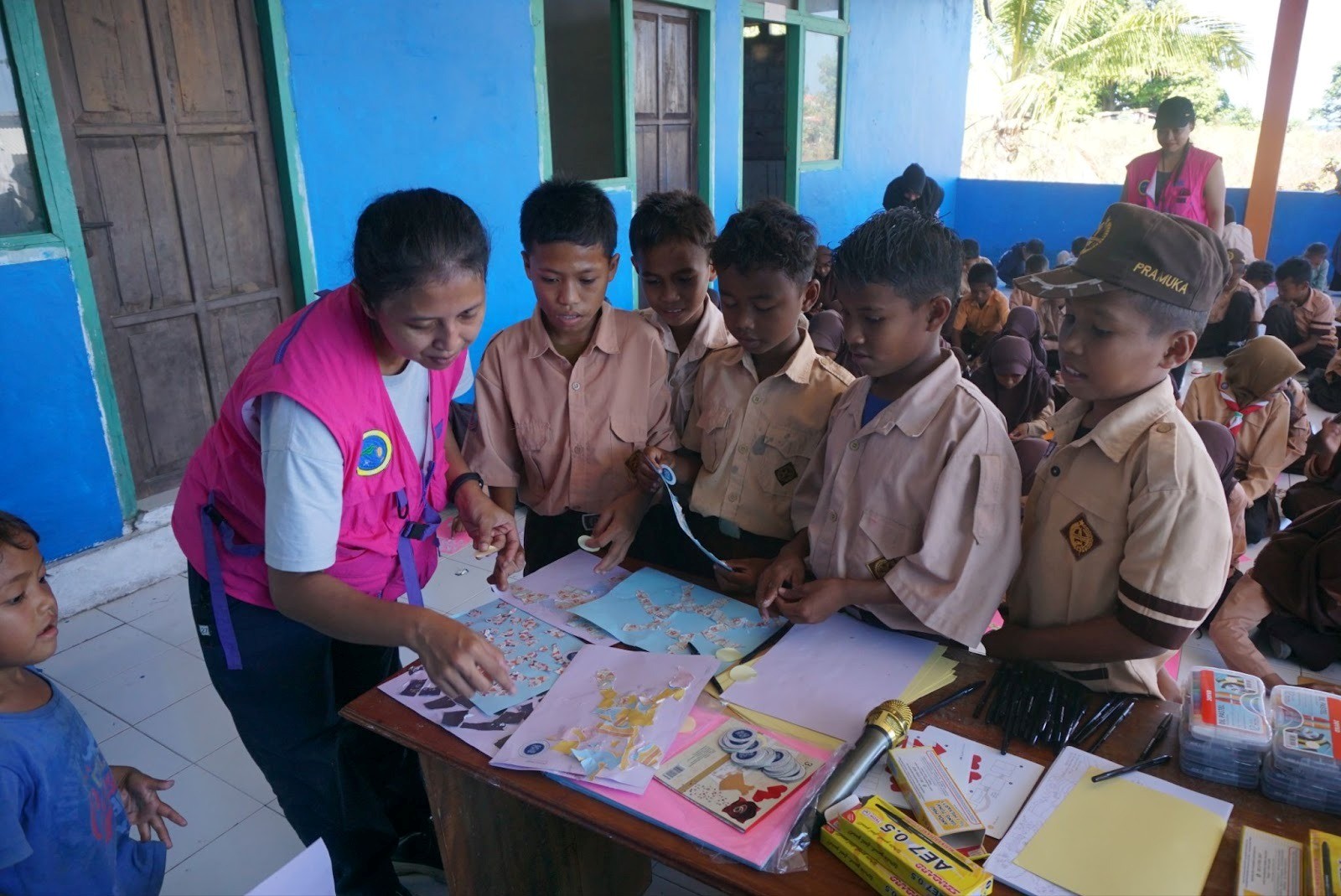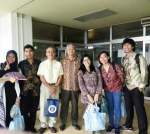Sundaram Seminar: Halal Cosmetic Trends and Future Industry Opportunities
By Iko Sutrisko Prakasa Lay - Mahasiswa Matematika, 2021
Editor M. Naufal Hafizh, S.S.

BANDUNG, itb.ac.id – The School of Pharmacy at Institut Teknologi Bandung (SF ITB) hosted the "Sundaram" Cosmetic Seminar at the Center for Research and Community Service (CRCS) Building, ITB Ganesha Campus, on Saturday (28/9/2024). This event was part of the 77th anniversary celebration of the ITB School of Pharmacy.
The seminar's first session, titled "Beauty Unveiled: Trends in the Cosmetic Industry" featured Dr. Sari Chairunnisa, Sp.KK, from PT. Paragon Technology and Innovation. During her session, she discussed cosmetic industry trends and emphasized the importance of halal products in ensuring skin safety and health.
Dr. Sari explained the rapid development of the global cosmetic industry, particularly in Indonesia. According to her, cosmetic trends now extend beyond skincare and makeup to include local perfumes and fragrances, which have seen substantial growth in recent years.
The growth of the cosmetic industry is driven not only by its products but also by the increasing diversity of distribution channels. She explained that changes in consuming patterns are influenced by the rise of e-commerce, live-streamed sales, and the emergence of shops with lifestyle concepts.
As a predominantly Muslim country, the demand for halal-certified cosmetics in Indonesia continues to rise. Halal cosmetics go beyond ingredient sourcing, because they also encompass production, storage, and packaging processes in accordance with sharia principles. In Indonesia, halal certification is regulated by the Halal Product Assurance Agency (BPJPH) in collaboration with LPPOM MUI, ensuring that all raw materials are collected from halal sources and processed safely.
Dr. Sari also discussed ingredients permitted and prohibited in halal products, such as fermented ingredients that require stricter oversight. On this matter, she highlighted halal cosmetics technology, including the use of microbiome technology and active fermentation ingredients, both of which are in high demand. The utilization of these ingredients ensure not only skin safety and comfort but also meet consumer expectations for product authenticity and health benefits.
Additionally, Dr. Sari delved into cosmetic marketing strategies in the digital era. She pointed out that marketing today isn't solely reliant on products but also on the distribution channels and various innovative approaches used to reach consumers. In Indonesia, consumers tend to purchase cosmetic products through three main outlets, namely minimarkets, e-commerce platforms, and health and beauty stores. This shift in consumer preferences presents both challenges and opportunities for the cosmetics industry to innovate and adapt.
She also discussed the growing trend of sustainability, particularly among Generation Z (Gen Z) consumers. This generation seeks products that not only enhance beauty but also promote environmental safety and comfort. This is evident in the increasing demand for products using eco-friendly materials and recyclable packaging.
Another emerging trend is personalization in beauty products. Consumers are no longer satisfied with generic products, but they now expect products tailored to their specific skin needs. Along with this, the use of Artificial Intelligence (AI) in cosmetic formulation is gaining traction, enabling companies to create more targeted products that align with consumer preferences.
With this recent rapid growth, the cosmetics industry faces challenges not only in product innovation but also in meeting the increasingly diverse and complex needs of consumers, all while maintaining sustainability and compliance with halal standards.
Reporter: Iko Sutrisko Prakasa Lay (Mathematics, 2021)
Translator: Hanifa Juliana (Urban and Regional Planning, 2020)
Editor: Anggi Nurdiani (Management, 2024)

.jpg)


.jpg)
.jpg)



